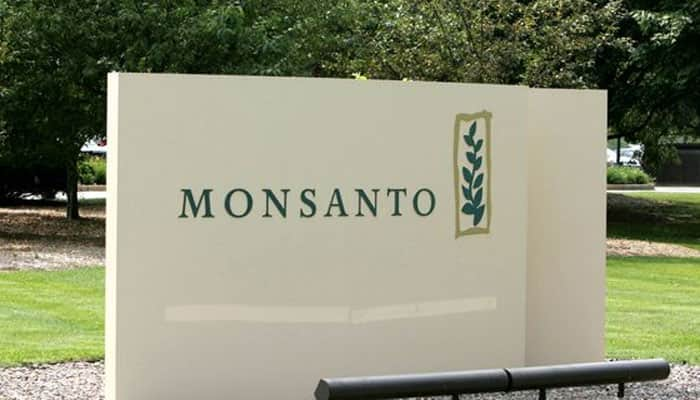Frankfurt: German chemicals giant Bayer said Wednesday it had agreed to buy the controversial US seeds and pesticides firm Monsanto for $66 billion, in a deal that triggered immediate criticism from environmentalists.
After a months-long pursuit, Bayer said its US peer had accepted an improved offer of USD 128 per share for Monsanto in an all-cash transaction, avoiding the need to resort to a hostile takeover.
The 58.8-billion-euro deal marks the largest-ever takeover by a German firm and will create one of the largest firms in the sector.
"The combination with Monsanto represents the kind of revolutionary approach to agriculture that will be needed to sustainably feed the world," Bayer chief executive Werner Baumann told investors in a conference call.
The two firms said in a joint statement that the deal "brings together two different, but highly complementary" businesses.
But in a nod to fierce opposition in Europe to Monsanto`s use of genetically modified crops and its potent herbicide Roundup, Friends of the Earth labelled the tie-up a "marriage made in hell".
"This mega corporation will be doing its best to force damaging pesticides and GM seeds into our countryside," campaigner Adrian Bebb said in a statement.
The deal is expected to be completed by the end of 2017, Bayer said, though it still requires shareholder and regulatory approval.
Baumann said in the call that he had already "received encouraging feedback" from regulatory agencies.
But the Bayer-Monsanto dance comes in the wake of two other proposed mega-mergers involving US companies DuPont and Dow Chemical and Swiss company Syngenta and ChemChina, as low crop prices depress demand for many agricultural products.
The deals have sparked worries among farmers who fear that consolidation will lead to higher prices for seeds and less choice, and the latest tie-up may face close regulatory scrutiny.
"There is very little overlap" between the two companies that might concern regulators, Monsanto CEO Hugh Grant told investors on Wednesday. "I think it`s a very clean deal."
But German Green Party MEP Martin Haeusling insisted that "it`s up to German regulators and European competition commissioner Margrethe Vestager to stop Bayer from dominating the worldwide agrochemicals market."
Bayer`s share price leapt on news of the deal but fell back as the afternoon wore on, gaining 1.22 percent to 94.44 euros in Frankfurt by 1500 GMT.
Wall Street investors were even less convinced by the deal, with Monsanto shares up just 0.7 percent to $106.84 in early trading in New York.
"Scepticism is mostly linked to antitrust fears," suggested analysts at Morningstar.
- A long engagement -
Bayer -- best known as the company behind aspirin and heroin -- has been wooing Monsanto since late May, when it made an initial bid of $122 per share, valuing the GM crop giant at $62 billion.
Monsanto rejected that bid, but said it was "open" to further talks.
The 153-year-old German chemicals behemoth then raised its offer twice more but was rebuffed each time as Monsanto held out for more money.
Under its final, sweetened bid, Bayer also offered to pay Monsanto a $2-billion break fee in case the merger is rejected by US or European authorities.
"We do not like this transaction, because we think that Bayer is overpaying significantly," wrote analyst Peter Spengler of DZ bank on Wednesday before the deal was confirmed.
But Bayer said that it expects synergy savings from the merger will allow it to add $1.5 billion to its underlying profit as measured by EBITDA within three years.
Added together, Bayer and Monsanto booked sales of 23 billion euros in 2015.
- Cries of dismay -
News of the takeover was met with dismay by environmental campaigners who have long been critical of Monsanto`s genetically modified crops and its widely used weedkiller Roundup, whose active ingredient glyphosate is suspected of being a carcinogen.
The merged firm "will play a defining role in deciding which seeds and pesticides come onto the market," warned Greenpeace agriculture expert Dirk Zimmermann.
Environmental groups have long feared the potential health effects and impact on ecosystems of genetically modified seeds and worry about the combined power the two firms would wield in the seeds and pesticides market.
In Europe, debate about glyphosate has reached Brussels, where EU member states in July voted to restrict its use by the bloc`s farmers for 18 months.
Bayer will have to "decisively address the point of reputation and challenges of Monsanto in Europe," Baumann said when the firm launched its takeover attempt.
















